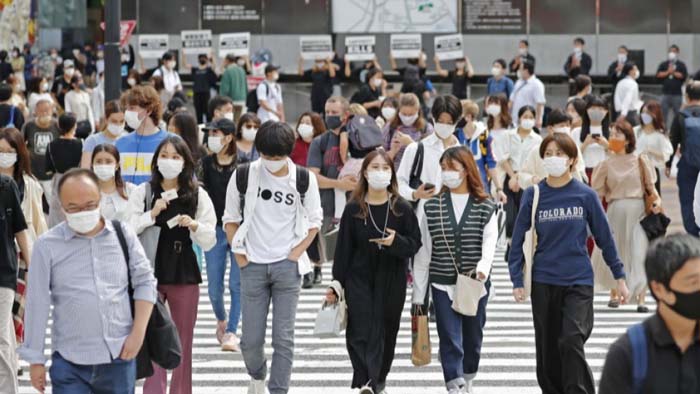
Japan begins accepting new entry applications amid COVID decline
Newswire
Tokyo: The Japanese government started accepting new entry applications this week from companies and educational institutions for individuals from overseas, easing restrictions that were introduced in January amid the coronavirus pandemic.
The COVID-19 quarantine period has been cut to three days from 10 for business travelers who have been vaccinated as progress in inoculations has been made around the world.
“We have taken a step toward easing some of the restrictions as infections have been declining and in response to strong demand by the business community,” Deputy Chief Cabinet Secretary Yoshihiko Isozaki said at a news conference.
Companies and educational institutions must file the required documents in advance and receive government approval to host individuals from overseas on condition they supervise those entering the country accordingly.
The farm ministry began receiving many inquiries Monday related to the application process for technical interns, as the country is facing a shortage of workers in the agricultural sector due to the graying and declining population.
“I’m not sure how many applications we will receive. There are many things that must be checked, so we expect our workload to reach a level we have never experienced before,” a senior farm ministry official said.
Yoichiro Nukui, executive director of the Tokyo Metal Stamping Association, an organization in charge of supervising technical interns, said the move was needed “as some companies had started to forgo accepting technical interns amid no clarity about when they would enter Japan.”
An official in charge of processing the applications at the Ministry of Economy, Trade and Industry, which oversees the manufacturing sector, said his section has been constantly answering phone calls from people inquiring about receiving interns under the relaxed restrictions.
While the government is continuing to suspend the entry of tourists, it will also consider resuming the acceptance of tour groups by reviewing within this year how their activities can be controlled and monitored.
Those who are eligible for the shorter quarantine period must have been fully inoculated with vaccines developed by either Pfizer Inc., Moderna Inc. or AstraZeneca Plc., the three currently approved by the Japanese government.
Firms need to submit documentation for business travelers, including written pledges by the businesspeople and companies to follow anti-virus measures as well as the planned activities of the travelers upon arrival in Japan.
It may take a week or two before the first travelers who have been granted shorter coronavirus quarantine periods arrive in the country, a health ministry official said.
The new measure comes after Japan has seen a sharp decline in COVID-19 cases following this summer’s fifth wave of infections and economic activities have continued to resume.
Companies welcomed the easing of restrictions. Keita Ishii, the president of trading house Itochu Corp., said Friday at a press conference the easing of restrictions would benefit his company’s operations.
ANA Holdings Inc. President and CEO Shinya Katanozaka said, “We welcome the government’s move in easing restrictions.”
Students and interns entering for extended stays under the new rules must be tested for COVID-19 several times, including before departing for Japan and three days after arriving.
Their quarantine period will be 14 days in principle but shortened to 10 for those who have received one of the three vaccines approved in Japan.
Still, concerns remain that the latest easing of restrictions will have limited impact. Business travelers account for just over 5 percent of the overall foreign visitors to Japan.
Japan suspended in January the new entry of foreigners, including businesspeople, in principle, following an explosive virus resurgence and the spread of highly contagious variants. It has only accepted individuals under “special circumstances,” such as on humanitarian grounds.
